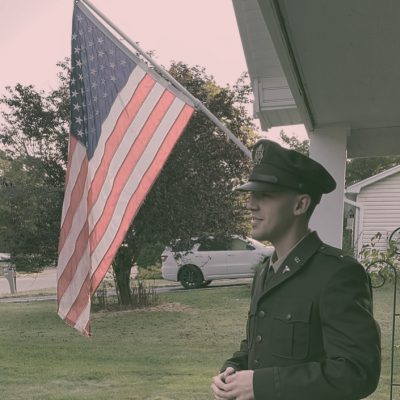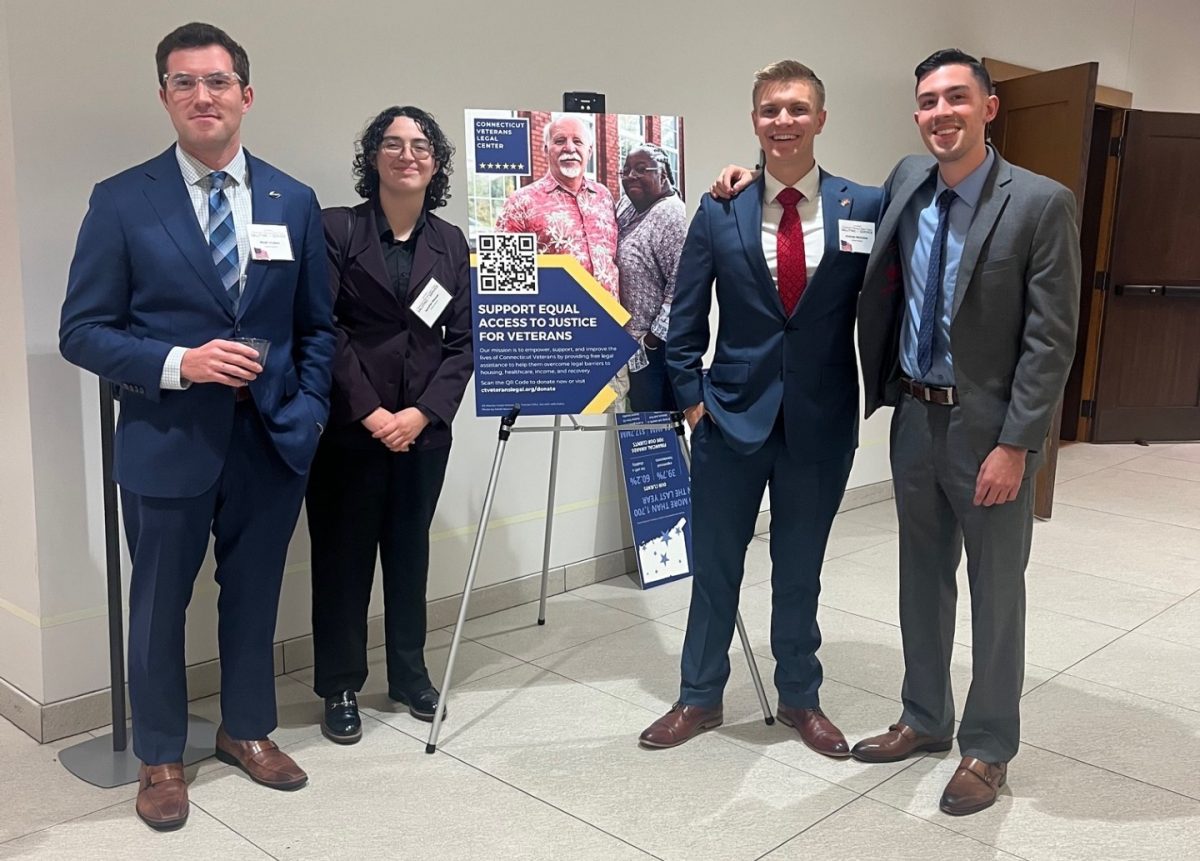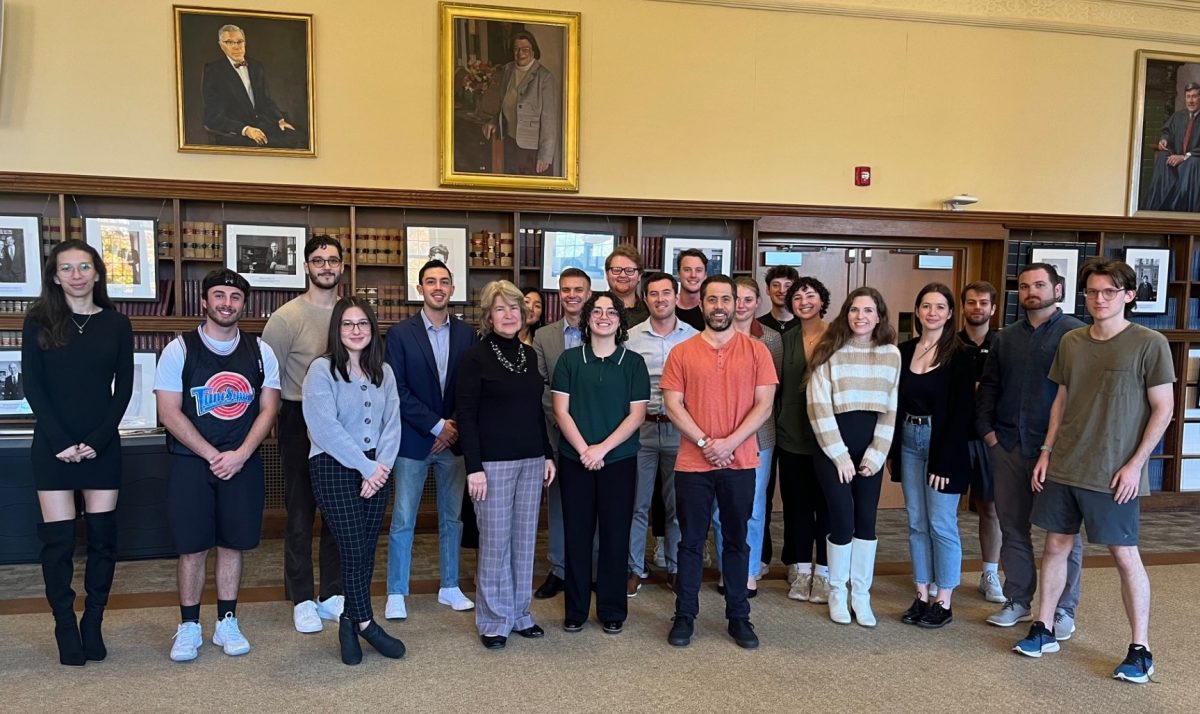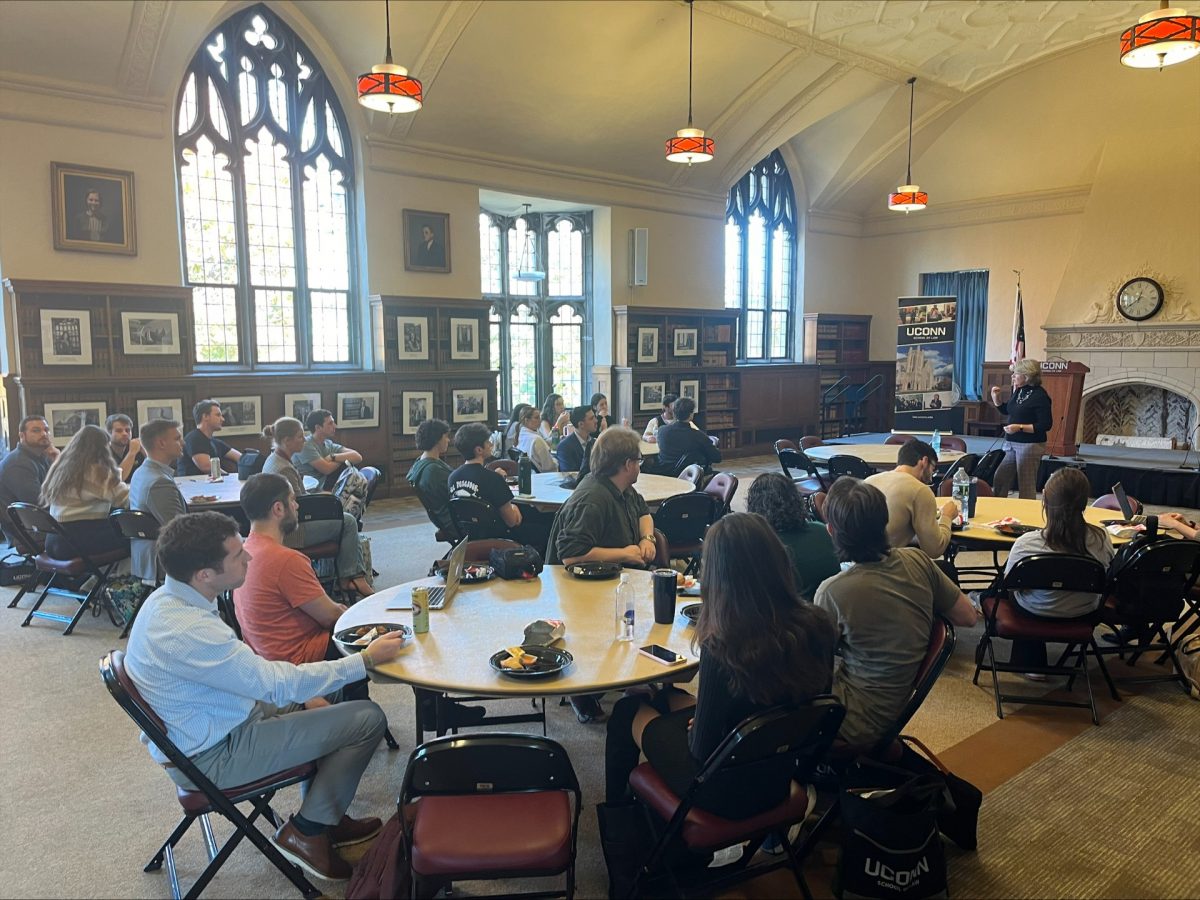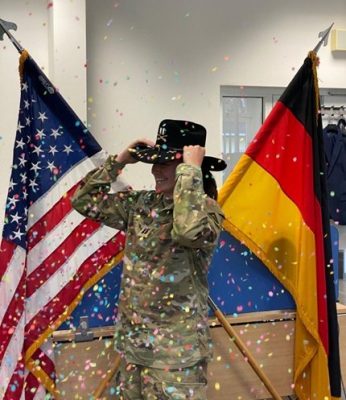
This Veterans Day, we recognize the remarkable members of our UConn Law community who have served—or continue to serve—in the United States Armed Forces. Currently, there are approximately 31 veterans/service members enrolled at UConn Law. The class of 2028 includes 12 veterans and service members.
One of those students is Caleigh Heske, a first-year law student and active-duty Army officer in the Army Funded Legal Education Program (FLEP). Before coming to law school, she led soldiers as an Armor Officer, served in a Cavalry Squadron, and helped plan multinational training exercises in Europe. Now, she’s preparing for a future career in the Judge Advocate General’s (JAG) Corps.
In her own words below, Heske talks about her service in the military, what brought her to UConn Law, and the School’s growing community of veterans and service members.
Career Before Law School

“I was commissioned as an Armor Officer in 2020 and completed the Armor Basic Officer Leader Course, as well as the Army Reconnaissance Course, at Ft. Benning, GA. Following training, I moved to Fort Lewis, WA, where I served as a Scout Platoon Leader and then Executive Officer in a Cavalry Squadron. I then completed a broadening assignment in Grafenwoehr, Germany, as an exercise planner for the 7th Army Training Command, with a specific focus on multinational exercises conducted in the Black Sea Region of Europe.”
Transition to Law School
“I knew I wanted to be in the Army for a long time, and I discovered the Army’s “Funded Legal Education Program” while I was in college. The program, which selects 25 officers annually, allows officers to serve in their branch for 2-5 years before transitioning to law school and eventually joining the JAG Corps. The idea is that officers will utilize their knowledge and experience in their original branch to strengthen the JAG Corps. The program allows me to remain on active duty while in school and to work at a JAG office during the summers. Upon completing law school and passing the bar, I will return to the Army full-time as a JAG Officer.”
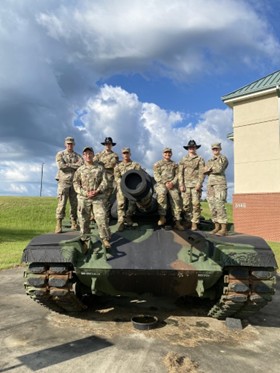
Adjusting to Law School Life
“The values the Army instilled in me —discipline, resiliency, and preparedness —have made the transition to law school much easier. I am fortunate that another officer participating in FLEP is also a 1L at UConn. Although we did not know each other before orientation, we became fast friends, and he has been someone I constantly rely on for advice. He reminds me of our greater purpose as future JAGs, and I am blessed we get to go through this experience together.”
Finding Community and Purpose
“One of the best aspects of the military is the ability to build strong foundational relationships. Regardless of background or branch, there is a shared unity of values that brings people together quickly. I have found that to be true in VALOR as well. The organization places service first, and the members are always thinking of new ways to give back to the UConn and veteran communities.”
Reflection This Veterans Day
“This Veterans Day, I am reminded of the sacrifices that soldiers and their families make every day, so that people in this country can enjoy the freedom they have.”
Honoring Service Every Day
As we celebrate Veterans Day, the UConn Law community is grateful for students like Caleigh Heske, whose dedication to service inspires those around her. Her journey reminds us that leadership, resilience, and integrity—values forged in military service—enrich our classrooms and strengthen our community.
Organizations like VALOR (Veterans and Armed Forces Legal Outreach), UConn Law’s student veterans group, embody those same values. Through service projects, mentorship, and outreach, VALOR continues to support veterans and build connections between military and civilian students alike.
Veterans make it possible to express our thoughts and emotions freely, have meaningful debates on vital issues, strive for positive change, and exercise our rights as Americans. Please take a moment to thank all of our UConn Law active duty members, veterans and their families for their service and support!

